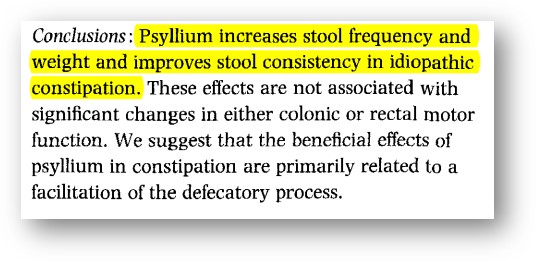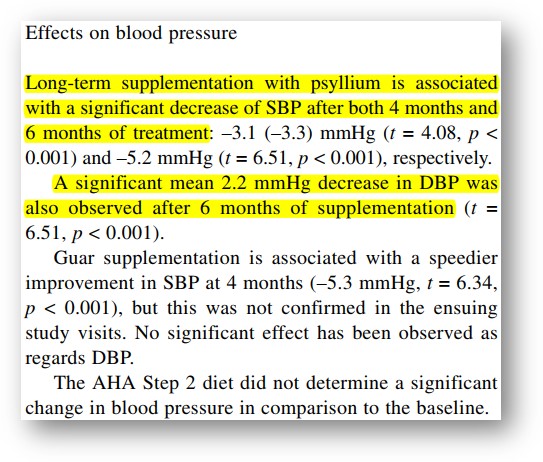What is the true nature of "this", which is also used as a constipation medicine?
Hello. I'm a pharmacist Jinny.
Today, I would like to introduce you to 'psyllium husk', which has recently become popular among people who suffer from constipation. Psyllium husk is the skin (blood) of plantain seeds (psyllium), which is known to absorb water from the intestines and increase the amount of stool, thereby facilitating bowel movements. Since it promotes bowel movements with the most similar action to the normal physiological phenomenon of the human body, it is also used as a constipation medicine and has a lower possibility of side effects than other constipation medicines.
You'll be tempted to hear it. Now, let's take a look at some real research to see what benefits psyllium husk has specifically when it comes to constipation, and what additional benefits there might be.
1. Increased stool weight and decreased stool hardness
When we say that we have difficulty with bowel movements, we are not simply referring to the low frequency of bowel movements. They often go to the bathroom, but they often complain of pain during bowel movements due to a lingering feeling or too hard stools. Psyllium husk may also help improve these symptoms.
A paper published in Aliment Pharmacol Ther found that psyllium husk intake not only helps increase the frequency of bowel movements, but also increases stool weight and decreases stool hardness [1].

"Psyllium husk increases stool frequency and weight and improves stool hardness in idiopathic constipation (constipation of unknown cause)."
We all know that it's important to manage cholesterol to prevent adult diseases. In particular, it's important to lower LDL cholesterol. Unlike HDL cholesterol, which transports cholesterol from the walls of blood vessels to the liver, LDL cholesterol builds up on the walls of blood vessels and can cause atherosclerosis, which is why it is called "bad cholesterol."
In this regard, in 2015, the British Journal of Nutrition reported the results of an experiment on the effects of psyllium husk consumption on cholesterol levels in children and adolescents [2].

"Statistically significant changes in total cholesterol and LDL cholesterol were observed between the control and intervention groups over time. (Omitted) In addition to leading to significant reductions in LDL cholesterol, psyllium husk therapy has been found to be safe and tolerable in the treatment of children and adolescents with hypercholesterolemia."
According to the <Hypertension Fact Sheet 2020> published by the Korean Society of Hypertension, the number of people diagnosed with hypertension in medical institutions has steadily increased from 3 million in 2002 to 9.7 million in 2018. Similarly, the number of people prescribed medication for high blood pressure rose steadily from 2.5 million to 9 million during the same period. I'm sure many of you who are reading this are struggling with blood pressure management.
In 2010, a paper was published that studied the changes in systolic blood pressure (peak blood pressure) and diastolic blood pressure (bottom blood pressure) following psyllium husk intake [3].

"Long-term supplementation with psyllium husk is associated with a significant reduction in systolic blood pressure after four and six months of treatment. An average reduction of 2.2 mmHG in diastolic blood pressure was also observed after 6 months of supplementation."
Today, we've taken a look at 3 scientifically validated benefits of psyllium husk. Since psyllium husk expands when it encounters water in the intestine and promotes intestinal peristalsis, it is recommended to consume psyllium husk with plenty of water to maximize this effect.
I hope you have a healthy day in body and mind. It was Jinny.
[1] W Ashraf, F Park, J Lof, E M Quigley. (1995) Effects of psyllium therapy on stool characteristics, colon transit and anorectal function in chronic idiopathic constipation. Aliment Pharmacol Ther. 9(6):639-47.
[2] Ribas, S. A., Cunha, D. B., Sichieri, R., & Santana Da Silva, L. C. (2014). Effects of psyllium on LDL-cholesterol concentrations in Brazilian children and adolescents: a randomised, placebo-controlled, parallel clinical trial. British Journal of Nutrition, 113(1), 134–141.
[3] Cicero, A. F., Derosa, G., Bove, M., Imola, F., Borghi, C., & Gaddi, A. V. (2009). Psyllium improves dyslipidaemia, hyperglycaemia and hypertension, while guar gum reduces body weight more rapidly in patients affected by metabolic syndrome following an AHA Step 2 diet. Mediterranean Journal of Nutrition and Metabolism, 3(1), 47–54.




![[Green Lipped Mussel Benefits] The Maori Joint Health Secret, 3 Benefits of Green Lipped Mussel](http://esther-mall.com/cdn/shop/articles/40.jpg?v=1734005755&width=480)